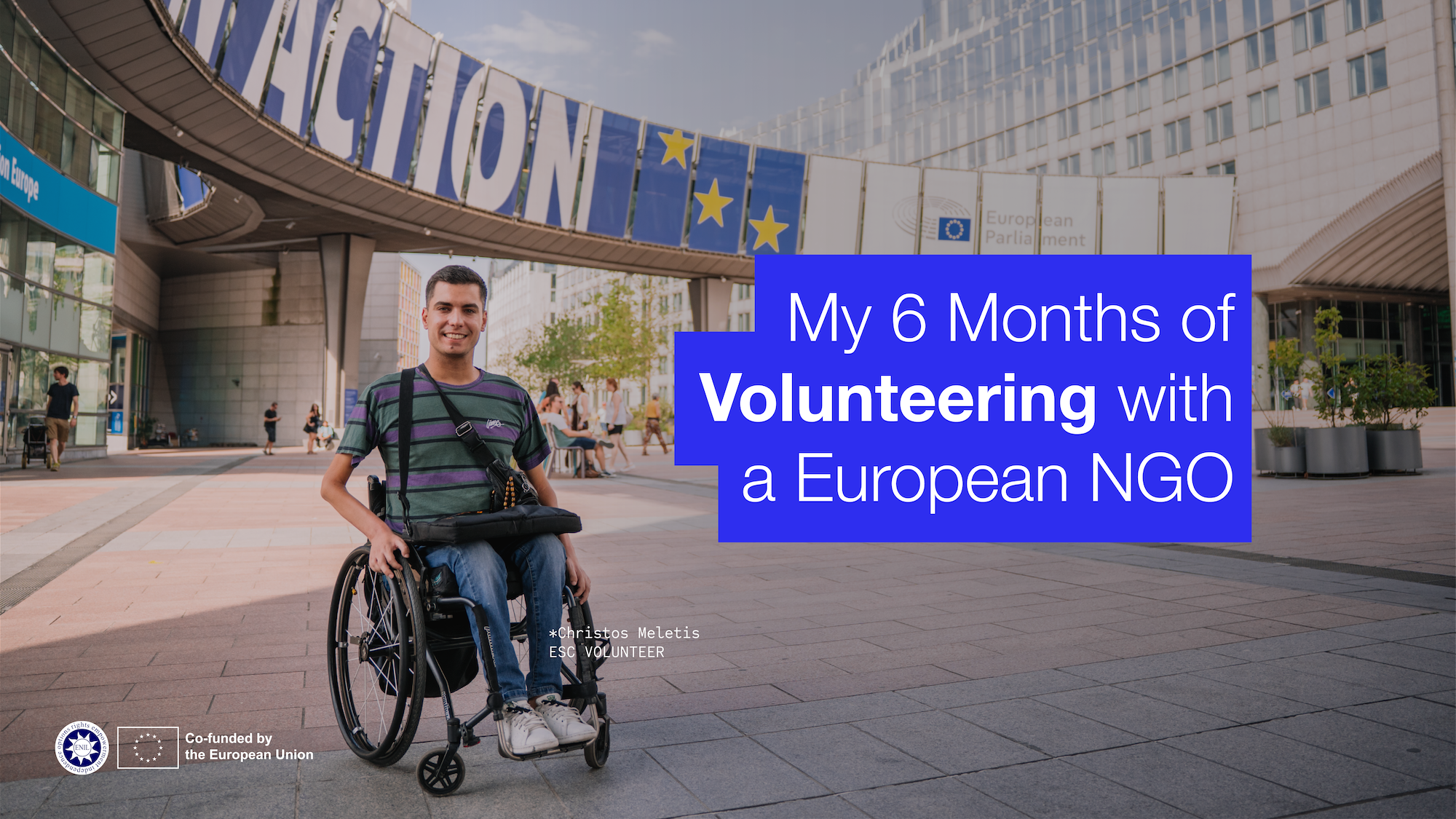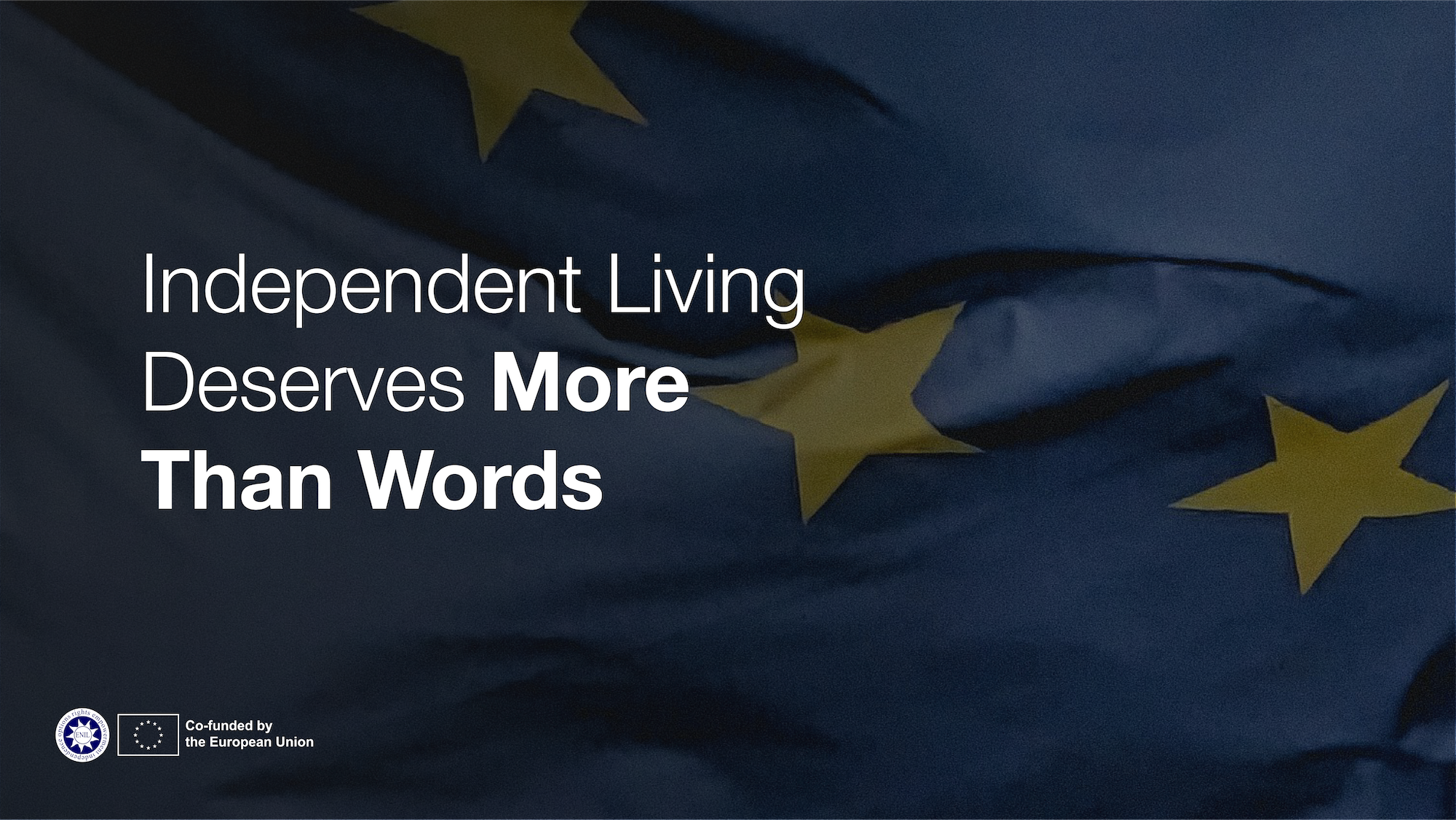I had the privilege of representing ENIL in Genoa (Genova), Italy recently. To be more specific, the small town of Santa Margherita. A picturesque town that really showcased the beauty and wealth of the Northern part of Italy. We were hosted by the Italian organisation AFIDO.
I went with a group of other disabled people from Belgium: Alice Jorge, who runs a disability advocacy group in Belgium, Frank Sioen who used to work at ENIL, Mathilde Cotman a disabled activist and Nadia Hadad, a Board member of ENIL and the World Independent Living Network (WIN), who was the leader of our group.
We arrived late on the 29th of September, after travelling for several hours on the 28th of September. There are truly worse fates than arriving in Italy at 1am, but it was good to go to bed. The next few days were spent with a dizzying array of public conferences (speeches), parties, breakfasts, lunches, dinners, seaside walks and exploration of towns. Our group represented ENIL with several presentations throughout the days, I believe at least three. We seemed to get a decent amount of interest from the other delegates. Nadia and Frank mostly led on those occasions, with contributions from myself, Alice and Mathilde.
Collecting my thoughts on the whole experience is somewhat hard, because everything happened so quickly. But I believe my main takeaways from the trip, from a disability rights perspective are as follows:
- Ableism is an easy to fall into trap.
- Teaching the social model of disability can be successfully done in creative ways.
The first lesson occurred on the Monday of our time in Italy, where we went to the town of Imperia via coach, to watch a show put on by a Catholic-run charity that claimed to help disabled people. The show had an uncomfortable vibe/undertone to it, where we (the audience) were invited to sort of applaud at the performing disabled people, including a girl singing Shania Twain’s “(Man), I feel Like a Woman” which in itself, could perhaps be interpreted as saying she was only acting as a ‘normal’ woman.
Although I have a background in disability academia and activism, I was only half aware of this potentially problematic messaging while watching the show, partly because I will always enjoy performances of Shania Twain’s songs, but also because it took me a bit too long to grasp the implications of what was happening. I did bring it up with the organisers of the event the next day, taking my cue from Nadia who was the first to complain.
The lesson I take from this is that anyone, even those of us who flatter ourselves with the idea that we are experienced disability activists can be misled by an event and not fully comprehend the problematic nature of it.
It was not the first time in the trip where we had encountered some troubling barriers. A few days prior we went to experience blind football, the venue chosen unfortunately had no toilets, or even really places to sit down.
I only mention these incidents because they were reminders to me not to take it for granted that access and actual inclusion would be pre-planned and factored into the organisation.
On a more positive note, on the eve of our departure, I invented a new game for the participants. They had to try to drink Coca Cola from a bottle, but were not permitted to use cups or glasses, or straws, or to drink directly from the bottle. The idea was to try to disable them from being able to participate from doing something (drinking) that they had taken for granted till then. Whoever could find a way to drink the cola without breaking any of the disabling barriers I had put in place would be the winner of the game. One of the Italian representatives won, almost straight away. Using her hands to form a cup, she drank some of the Cola. She told me afterwards that she felt unconvinced and frustrated that she had to use such a difficult method for doing something she had taken for granted. She agreed with me, it showed the frustrations disabled people must face in a whole line of different situations, not just drinking (though certainly it can be that), and she agreed the best thing was to fight for disabled people to have easier and equal access to all parts of society, instead of needing to find difficult solutions just to be included in everyday life.
I hope this, or some variant of it, is a good way of teaching the bare bones of the social model going forward.
Finally, one last lesson I took from Italy, was how suddenly climate change can raise its ugly head, when you least expect it. While we were in Imperia, the town where we watched the problematic disability show, the weather was pleasant, warm, some clouds, but no hint at a storm. We were told by one of the French representatives that her home city of Marseilles was flooded. This was a rather stunning hit over the head. She told us Marseilles had been flooded in the past before, but recently it had become far more frequent.
As if the announcement of floods in Marseilles was some sort of magic incantation, the weather in Imperia soon turned to a storm, apparently the tail end of the Marseilles floods. We were safe on the bus back to Santa Margherita, but it was a rather profound moment. I suppose the lesson to take away from it is, everything is changeable – sometimes for the best, sometimes for the worst. It’s a useful ray (to stay with a weather theme for a moment) of hope for disability activism going forward, as things might seem like they never change, but progress like the weather is often subtle, but always liable to change.
This article was written by P.B. O’Dea, European Solidarity Corps volunteer at ENIL. The exchange described in this article was part of the SuperBa project, funded by the European Union through Erasmus+.


